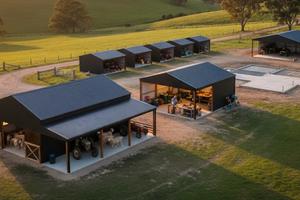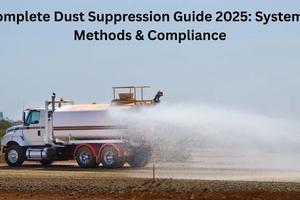Building a Support System: Essential Resources While Nurturing Emotional Wellbeing

Key Takeaways
Essential insights to remember
Building Community Support Networks - Foster parents need a strong support system including foster care agencies, other foster carers, and community resources to navigate the complexities of the foster care system. Organizations like "Friends of Foster Children" provide mentorship programs and resources that help both parents and children thrive during their foster care journey.
Trauma-Informed Care Preparation - Understanding attachment issues common in foster children helps create stability where children can begin healing. Foster parent training emphasizes trauma-informed approaches to address children's complex emotional needs resulting from their past experiences of neglect or abuse.
Educational and Medical Advocacy - Foster children often have unique educational and medical needs requiring special attention. Keep detailed records of medical history, educational assessments, and behavioral observations to ensure continuity of care when navigating the healthcare system and advocating for appropriate educational services.
Self-Care to Prevent Foster Parent Burnout - Perhaps one of the most overlooked aspects of fostering is self-care. Make sure your support system includes people who can provide respite care when needed. Many foster care agencies now recognize the importance of foster parent wellbeing and offer specific self-care resources.
Navigating Birth Family Relationships - When appropriate and safe, maintaining connections between foster children and their biological families supports a child's sense of identity. Your support network can help navigate these sometimes complex relationships with compassion, especially when working within reunification plans.
Foster care can be a very rewarding experience, but it is not always easy. If you are considering becoming a foster carer, it’s crucial that you have a strong support system in place to help you through all the ups and downs that can come along with caring for a child. In this post, we’ll explore the importance of building a support system, and the ways that you can prepare yourself for the journey ahead.
Why Support Is Important for Foster Carers
If you don’t have a support system in place, fostering can get quite lonely. While it’s very rewarding, there are bound to be times where you can’t do everything on your own, so it’s essential to have people around you that you can turn to for help, advice, and support when needed.
A good support system can help you navigate any practical or emotional issues that might arise. Having somebody to talk to can be very helpful, and your support system can also help with practical matters such as arranging transportation or childcare.
Types of Support
The good news is that as a foster carer, you don’t have to do it on your own. There are many types of support that you can access. Some examples are:
- Friends and family: Family members and friends will often be your first port of call as a foster carer. They can provide you with both emotional support and practical help.
- Foster care agency: Your foster care agency can provide a wide range of support types. These include guidance, training, mentoring, access to resources, and fostering allowances to ease the financial pressure and allow you to work less, so you can prioritise your foster child more.
- Other foster carers: Connecting with other foster carers in your area can be an ideal way to get support. These people understand fostering and your experiences as they have been through it themselves, allowing them to offer tailored advice and support that you can often only get from somebody who’s been there too.
- Professional support: Depending on the needs of your foster child, you may also want to consider getting professional support from a therapist or counsellor. This could include therapy for your foster child only, or getting therapy yourself if you feel it will help.
Preparing Your Support System
Before you start the journey of becoming a foster carer, building your support system is crucial. Some tips to help you prepare include:
- Talk to friends and family: Let the people in your life know your plans and explain what it involves. Ask them if they are willing to provide help and support if needed.
- Attend support and training groups: Your foster care agency will offer training and support groups you should attend while getting ready to foster. Attending as many as possible gives you the chance to meet other foster carers and build your support network.
- Look for local support: Find local groups for foster carers, or even parents’ groups in your area that you can attend to meet new people and get support.
Foster Children's Educational Journey
Educational stability is crucial for foster children, who often experience disrupted schooling due to multiple placements. As a foster carer, building relationships with school counselors, teachers, and educational advocates who understand the foster care experience is essential. Many foster children qualify for educational supports under federal laws, but navigating these systems requires knowledge and persistence.
Keep comprehensive records of educational assessments and achievements to ensure continuity when children change schools. Consider connecting with organizations like "Arizona Friends of Foster Children Foundation" or similar groups in your area that provide educational grants and resources.
Remember that children in foster care may have learning gaps or developmental delays due to their past experiences, so advocating for appropriate educational services is one of the most important ways you can support their long-term success.
Creating Stability Through Therapeutic Support
The psychological wellbeing of foster children requires specialized attention. Many children enter the foster care system with trauma histories that affect their behavior and emotional regulation. Therapeutic foster care provides targeted support for children with behavioral problems, attachment issues, or emotional difficulties.
Look into resources available through your foster care agency for accessing mental health services - many foster children qualify for specialized therapy. Creating a stable, predictable environment at home complements formal therapeutic interventions.
Simple routines, clear expectations, and consistent responses to behavior help foster children develop a sense of safety. Remember that behaviors that seem challenging are often expressions of past trauma, and responding with patience rather than punishment builds trust and security.
Navigating the Financial Aspects of Fostering
Understanding the financial support available for foster children helps you provide the best care possible. Foster care payments are intended to cover the child's basic needs, including food, clothing, and shelter. Additional benefits may include healthcare coverage through Medicaid, childcare assistance, and special allowances for clothing or school supplies.
Some states offer free college tuition for foster children who age out of the system. Keep detailed records of expenses related to the foster child's care, as some may be tax-deductible. While foster care allowances are not considered income, they may impact other benefits you receive.
Contact your state's Department of Children and Family Services to understand all financial resources available, including specialized payments for children with medical needs or developmental disabilities.
Building a Cultural Bridge
When caring for foster children of different cultural backgrounds, making efforts to honor and maintain their cultural identity is vital. Black children, Native American children, and children of color are overrepresented in the foster care system nationwide. Learning about and celebrating a child's cultural heritage helps them develop a positive self-identity.
Connect with community organizations that represent the child's cultural background, and incorporate cultural traditions, foods, and celebrations into your family life. For Native American children, the Indian Child Welfare Act provides special protections to maintain tribal connections.
Consider attending cultural competency training offered by your foster care agency to develop skills for supporting children from diverse backgrounds. Remember that respecting a child's culture is not just about special occasions but integrating cultural awareness into everyday interactions.
Preparing for Transitions and Permanency
Whether the goal is reunification with biological parents, adoption, or preparing older teens for independent living, supporting foster children through transitions requires thoughtful preparation. Work closely with your case worker to understand the child's permanency plan and your role in it.
For children returning to biological families, supporting positive family visits and maintaining a collaborative relationship with birth parents smooths the transition. If adoption becomes the goal, prepare for the emotional complexities this may bring for the child.
For teenagers aging out of foster care, programs like Independent Living Services provide crucial support for developing adult life skills. Organizations dedicated to former foster children can provide continued support after they leave the system. Remember that almost all transitions trigger grief responses in foster children, even positive changes, so providing emotional support during these times is essential.
Fostering is rewarding but going it alone can be challenging. Thankfully, there is a lot of support available for foster carers, so build your support network before you start to ensure you will always be able to get help when you need it.





